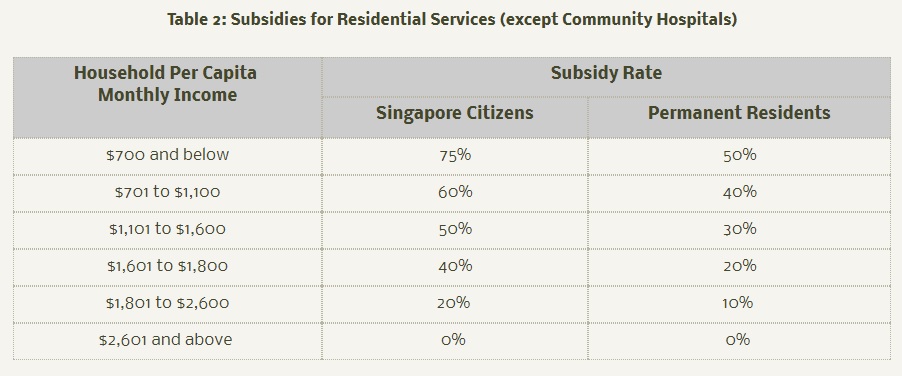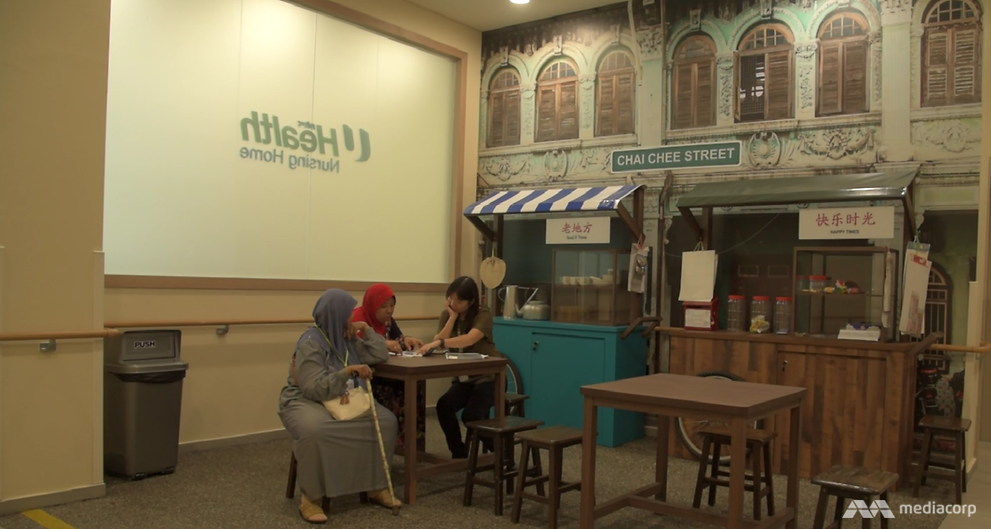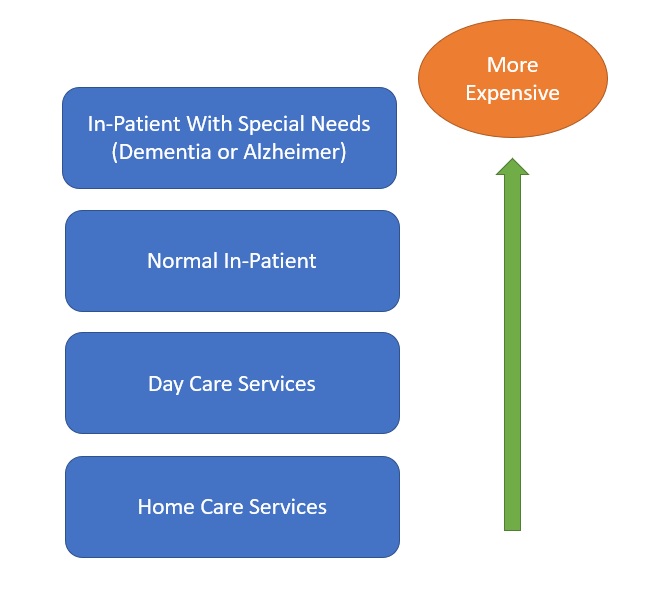Earlier this year, I talked about how Singapore ranked 5th in the world in terms of life expectancy and the increasing likelihood of us living past 100 years old.
I am taking care of my health and body better these days and I really hope to be healthy in my silver years. As much as I prefer to stay in a retirement home rather than a nursing home, I know I cannot eliminate the possibility of physical ailments and ill health plaguing me in future.
Sometimes, I do wonder if all my loved ones pass away earlier than me, who would look after me in old age? The answer appears to be a nursing home but I realise I know so little about them except for the common stigma that nursing homes are “bleak” and often the end point of a person’s life.
So when I was invited to visit NTUC Health Nursing Home (Chai Chee) recently, I jumped at the opportunity and spent even more time finding out all I can about nursing homes in general.
What I Like About NTUC Health Nursing Homes
1. Purpose of NTUC Social Enterprises & NTUC Health
NTUC Social Enterprises aim to provide good value to us every day, make sure we are in good hands, stay in good health and ensure a good progress for us in life.
Most Singaporeans are pretty familiar with NTUC social enterprises like NTUC Fairprice, NTUC Foodfare and NTUC Income. Personally, I enjoy the services provided by these enterprises. I buy most of my groceries from Fairprice, dine often at Foodfare and purchase my hospitalisation insurance from NTUC Income.
As a consumer and customer, I am reassured that the primary aim of these social enterprises is not to maximise profits but to meet pressing social needs in areas like health and eldercare, childcare, daily essentials, cooked food and financial services.
Increasingly, NTUC social enterprises are coming together to progressively transform and integrate their services, so they are relevant to the evolving needs of working people in Singapore.
For NTUC Health, also an NTUC Social Enterprise, one of its main purposes is to give working families and individuals peace of mind by delivering trusted care good enough for themselves and their loved ones. But it isn’t doing this alone.
NTUC Health is integrating its services with those of NTUC First Campus, NTUC Foodfare, NTUC LearningHub, and Healthcare Services Employees’ Union (HSEU), among other partners, to support the well-being of its nursing home residents, and enhance staff training and development.
The cost of elderly care is heavily dependent on the type of care provided. It tends to be higher for residents who need more attention.
For example, an elderly with Dementia or Alzheimers who needs specialised in-patient care would likely have to pay more compared to a relatively healthy elderly who only engages in some day care services like physiotherapy to improve mobility.
A nursing home does not take in just those with dementia but also those who require 24-7 care. An elderly resident with medical care needs (e.g. those who suffered a stroke) are less mobile; needing assistance with daily living.
The cost of accommodation at an NTUC Health Nursing Home will range between $2,000 to $3,500 per month before subsidy and excluding consumables. The range is pretty big because the cost is likely very dependent on each individual’s situation and the Government subsidies that the person qualifies for.
I managed to find out that 90% of the residents’ living within NTUC Health’s nursing homes are subsidised, which also means that the cost of elderly care is greatly reduced for these residents, alleviating their financial burden too.
For working families, having affordable, quality care for their elderly family members gives them peace of mind while they are working to support their families.
3. Quality of Care
At the official opening ceremony of NTUC Health Nursing Home (Chai Chee), NTUC Health shared that one of its goals of its nursing homes today, was to provide not just quality care, but to enable residents with high potential for recovery, be rehabilitated back to the comfort of their own homes and community.
That should help break the stigma that I shared early on.
“To date, NTUC Health has successfully rehabilitated and discharged more than 20 residents across its nursing homes, and hopes to discharge another 20 by the end of 2018. Residents who are discharged from NTUC Health’s nursing homes can continue to receive care and therapy support from its home and day care services.
One such resident is 63-year-old Mdm Ang Cheh Eng who, diagnosed with cancer, became wheelchair bound and lost the ability to care for herself. Upon admission to NTUC Health’s nursing home at Chai Chee, she was assessed and identified as a resident with high potential for recovery and discharge. With the support of a multi-disciplinary team of doctors, nurses, therapists and social workers, Mdm Ang went through intensive rehabilitation and worked closely with the team to learn how to walk and care for herself again. She was discharged in July 2017 and continues with outpatient therapy with NTUC Health, twice a week.
Mdm Ang shared “I am really happy to be independent again now, being able to move about on my own and care for myself. I was also very motivated, as not being able to move about affected me more than my cancer! I really appreciate the efforts of the NTUC Health nursing home team as they were very encouraging and professional the whole time. I am so glad they have helped me to return home to be with my husband again.”
With an environment that comprise of recreations of old streets within the nursing home, this helps some of the residents with dementia to “trigger memories from the past, which has a grounding and calming effect” on them. It also helps to evoke a sense of nostalgia among the residents and give them a sense of belonging to the nursing home.
After my visit and watching the video below, my view on nursing homes being a “bleak” place has largely been transformed. How about you?
